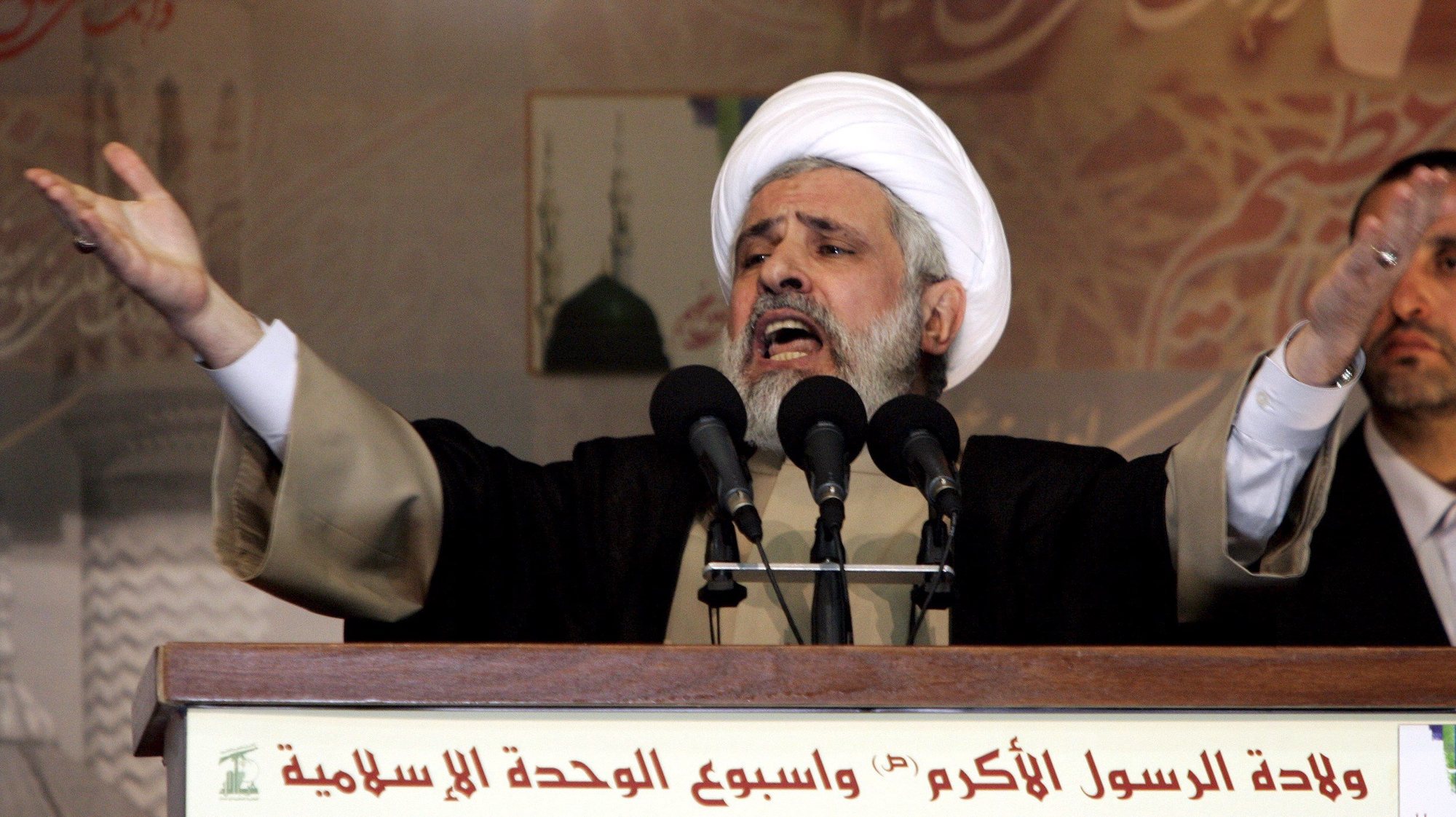Hezbollah’s deputy argued that the conflict with Israel only exists as a “support front” for the Palestinian resistance. “If the war ends, this military support will no longer exist,” he said.
Follow the live blog on the Palestinian-Israeli conflict here
The second-in-command member of the Lebanese Shiite movement Hezbollah said on Tuesday that the only safe path to a ceasefire on the Israeli-Lebanese border is a complete cessation of hostilities in the Gaza Strip.
“If there is a ceasefire in Gaza, we will stop it without any discussion,” said Hezbollah cleric and deputy commander-in-chief Naim Kassem in an interview with the American news agency Associated Press (AP), held at the organization’s headquarters in southern Beirut.
Kassem told AP that Hezbollah’s involvement in the war between Israel and Hamas, which has been going on in the Gaza Strip since October, means a “support front” for the Palestinian Islamist movement, but, he admitted, “if the war ends, this military support will no longer exist.”.
However, the representative acknowledged that if the situation in Gaza is characterized by “a mixture of ceasefire and non-ceasefire, of war and non-war,” the Lebanese and pro-Iranian Shiite movement cannot respond at this time on how it will act and react, since it does not know “the form, the results and the impacts” of such a formula.
In recent weeks, as ceasefire talks in Gaza have stalled, fears of an escalation on the Israeli-Lebanese front have grown.
Hezbollah and the Israeli military have been engaged in daily bombings and attacks for nearly nine months.with tens of thousands of people displaced on both sides of the Israel-Lebanon border.
Hamas has called for a full ceasefire in Gaza and not just a pause in fighting, while Israeli Prime Minister Benjamin Netanyahu continues to insist on the destruction of the Islamist group and its ability to continue governing the small enclave, as well as the return of Israeli hostages who remain in Palestinian territory.
About two weeks ago, The Israeli military said it had “approved and validated” plans for an offensive in Lebanon.even though the decision belongs to the country’s political leadership.
Regarding this possible scenario, General Charles Q. Brown, Chief of Staff of the United States Armed Forces, considered that any Israeli military offensive in Lebanon could imply a response from Iran in defense of Hezbollah, triggering a generalized conflict that could endanger the American forces stationed in the region.
Netanyahu recently warned that the Israeli army “is prepared for a very powerful action” on the border with Lebanon, while the Israeli armed forces themselves assured that they had a “plan prepared.”
Speaking to AP, Naim Kassem said that If Israel decides to conduct a limited operation in Lebanon, it should not expect fighting to remain limited..
“Israel can decide what it wants: a limited war, a total war, a partial war,” he said.
“But they should expect that our response and our resistance will not be determined by the rules of engagement imposed by Israel. If Israel promotes war, it does not mean that it controls its scope or who will be involved in the conflict,” he said.
This statement suggests a reference to the fact that Hezbollah’s allies in the so-called “Axis of Resistance” in the region, supported by Iran, armed groups in Iraq, Syria, Yemen and other regions could be involved in a possible large-scale war in Lebanon, which could also involve the United States, Israel’s most powerful ally.
Still this Tuesday, and on the combat front, The Israeli army has cited the launching of 15 rockets by Hezbollah in the Kiryat Shmona area. in the north of the territory, while the Lebanese Shiite movement claimed responsibility for an attack on a military base in that area and denounced new air strikes against civilian areas in southern Lebanon.
After nearly nine months of conflict in this border area, at least 510 people, most of them Hezbollah fighters, have already died, most of them on the Lebanese side and in the ranks of the Lebanese Shiite movement, which confirmed 326 militia casualties, some in Syria.
Israel confirmed the deaths of 25 people, including 15 soldiers.
Source: Observadora
